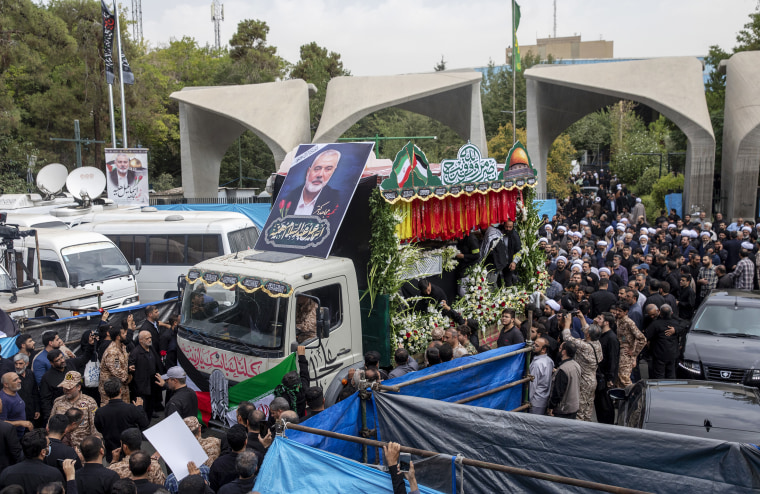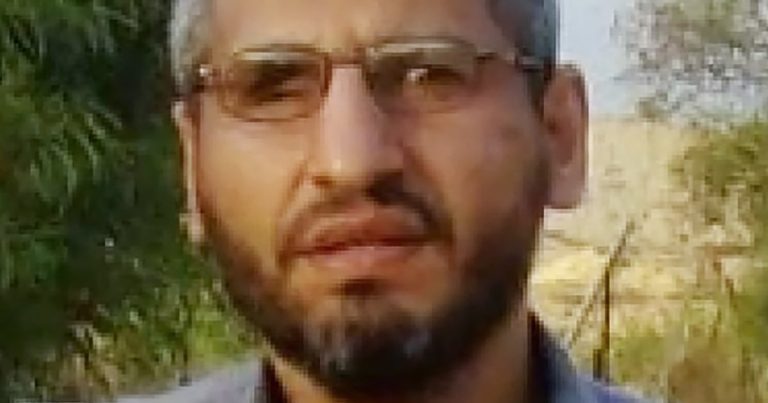Tensions between Iran and Israel have simmered, if not boiled, for decades since the 1979 Islamic Revolution in Iran, which does not officially recognize Israel’s right to exist and has been a significant supporter of the Palestinian cause.
Israel has long viewed Iran as an existential threat, particularly due to its backing of militant groups in the region, known as the “Axis of Resistance,” which includes Hezbollah in Lebanon and the Houthis in Yemen.
On Tuesday, Israel killed a senior commander of Hezbollah on the outskirts of the Lebanese capital, Beirut. Israel blamed Hezbollah commander Fuad Shukr for a rocket attack on Saturday that killed 12 children in the Israeli-occupied Golan Heights.
Kreig said “neither Israel nor Iran has any interest in all out escalation,” and both Haniyeh and Shukr’s “assassinations occurred within the confines of the sub-threshold war both sides have been involved in.”
He added there was a possibility that Netanyahu could use the assassinations of Deif and Haniyeh to create a “victory narrative… to gloss over the strategic defeat in the Gaza War.”
“There is hope that mediators like Qatar and the United States can help creating an offramp from this that will pull the region from the brink of war,” he said.

Any response by Iran, would likely be “within the parameters of the shadow war that has been ongoing for years,” he said. Tehran does not have to react with “overwhelming force” and is likely to do it “at a time of their choosing without tipping the balance,” he added.
Secretary of State Antony Blinken appealed for “all parties” in the Middle East to avoid escalatory actions that could plunge the region into further conflict and said Thursday that a cease-fire between Israel and Hamas was the only way to begin to break the cycle of violence and suffering.
Some, including Qatari Prime Minister Sheikh Mohammed bin Abdulrahman Al Thani, have suggested Haniyeh’s death could deal a serious blow to efforts to free hostages and negotiate a cease-fire in Gaza where almost 40,000 people have died since Oct. 7.
“How can mediation succeed when one party assassinates the negotiator on the other side?” he asked in a post on X, shortly after Haniyeh’s death was confirmed.
But Gideon Rahat, a professor of political science at the Hebrew University of Jerusalem, said ending the war ran contrary to what Netanyahu wants.
“It serves his main strategy, which is to never end the war because as long as the war goes on, his seat is safe,” he said.


